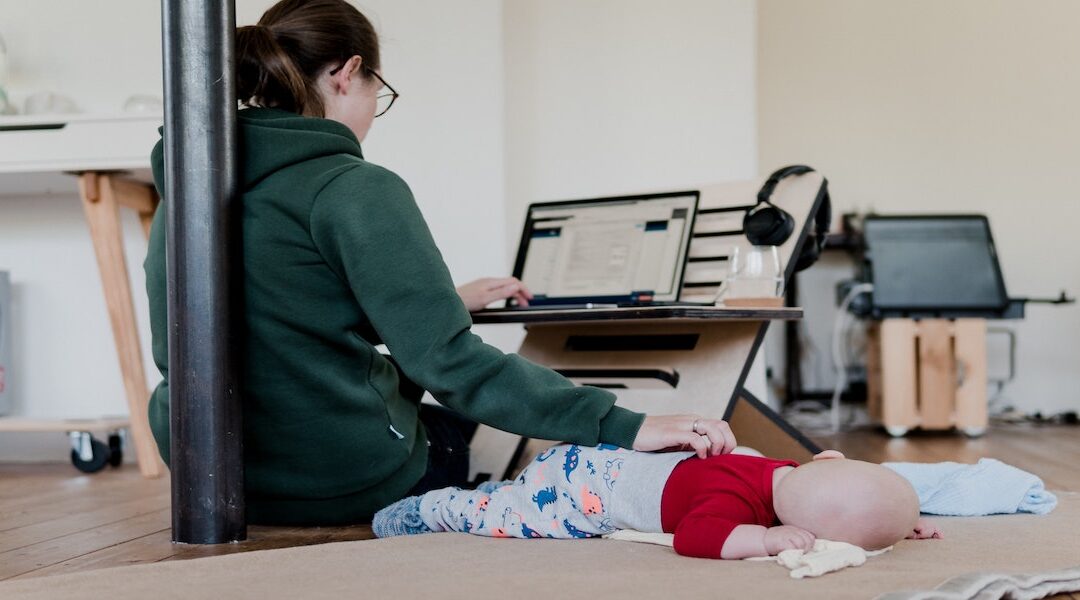Freelancing has become very common in the last few years. The gig economy has become so popular, that 35% of U.S. workers have gotten involved in the industry in one way or another. To put it another way, at this point, 57 million people freelance regularly.
Most freelancers work gigs in their spare time, but many have embraced contract work full-time. For those putting in 30, 40, or 50 hours a week working with clients, it’s important to learn how to avoid either burning out or procrastinating. Both extremes are dangerous and can sneak up on you easier than you may think. If you’re one of those who has made freelancing a career, here are some suggestions to help you find and maintain that all-important work-life balance.
Study Yourself
The first thing you should do to establish a better work-life balance is to break away from any preconceived notions of how your freelance workday should look. Forget the rigid 9-to-5 schedule and ditch any expectations — self-imposed or otherwise — that you must accomplish a certain amount of work or else you’re failing. Instead, take some time to study how you, yourself, operate, and how that impacts your freelance work environment.
Whether you’re an industry veteran looking to get out of the rat race, a working mother, or anyone else, every freelancing situation is different. Consider the factors that are specific to your situation so that you can find the best work structure for yourself.
For instance, are you a morning person or a night owl? Do you work better in small spurts or longer periods of focused time? Do you need to watch your children all day long, or are they at school for most of the day? Do you share responsibilities with a partner, or are you the sole provider? Questions like these can help you narrow down the best-case scenario to aim for as you structure each day, week, month, and so on.
Establish Boundaries
Boundaries are an essential element of a healthy work-life balance. This is especially true if most of your freelance work is done at home. If you work, eat, relax, and sleep all in the same spaces, everything tends to blend together over time.
To combat this, make an effort to set up clear boundaries. These go in both directions. For example, if you want to truly focus while you’re working, make sure your family and friends are well aware of your typical work hours. Even if they’re downstairs or a room over, they should know when you are not to be disturbed.
On the flip side, whenever you’re not working, unplug from your professional responsibilities. Turn off notifications on your phone, shut down your work computer, avoid checking your email, and don’t accept work-related calls unless they’re urgent.
Structure and Schedule Your Work
One of the most attractive things about freelancing is the flexible schedule — and for good reason. However, just because you’re not at the beck and call of an employer doesn’t mean you can leave things unstructured.
On the contrary, as your own boss, it falls to you to maintain a proper schedule throughout your workday, especially if you want to be effective and productive. Most productivity techniques tend to revolve around structure and scheduling, such as:
- Setting up a bedtime and establishing a morning routine.
- Planning when you’ll take breaks and eat meals.
- Knowing when to delegate tasks, such as taxes to a CPA.
- Being able to move on from a task or a project even if the results aren’t perfect.
Being structured also means regularly reviewing your business processes to see if you can change how you do things to help you be more efficient or effective as you work.
If you want to maintain a healthy work-life balance, take the time to invest in the administrative task of keeping your freelancing work both scheduled and structured.
Use Tech to Help
Finally, remember to use technology to your advantage. Tech isn’t just helpful in executing your freelance work, it can also give you a hand in your work-life balance.
For instance, you can use fitness trackers and smartwatches to track your activity, control your workouts, monitor your sleep, and generally help you maintain a healthy lifestyle. This can be critical when you spend the bulk of your time focused on keeping your business afloat, and is a key element in caring for both your personal and your professional life.
Establishing Work-Life Balance as a Freelancer
Freelancing is a powerful avenue to professional independence. However, it’s also an intense lifestyle — freelancers “hustle” for a reason — and if you’re not careful, it can consume your life.
That’s why every freelancer needs to put in the time to:
- Learn more about themselves, their strengths, their limits, and what time of the day is best for them to work.
- Establish work-life boundaries.
- Set up schedules and structure their activities.
- Use tech to monitor their health.
All of these tools and activities can help you remain aware of how much time you’re spending on both work and personal lives.
Left unattended, you’ll inevitably slip into habits of either procrastinating or becoming a workaholic. However, if you actively follow the above advice and strive to maintain a good work-life balance, you’ll be able to establish a predictable, sustainable workflow that can help you survive and thrive indefinitely as a freelancer.
Charlie Fletcher is a freelance writer from the lovely “city of trees”- Boise, Idaho. Her love of writing pairs with her passion for social activism and search for the truth. You can see more of her work on Contently.
















